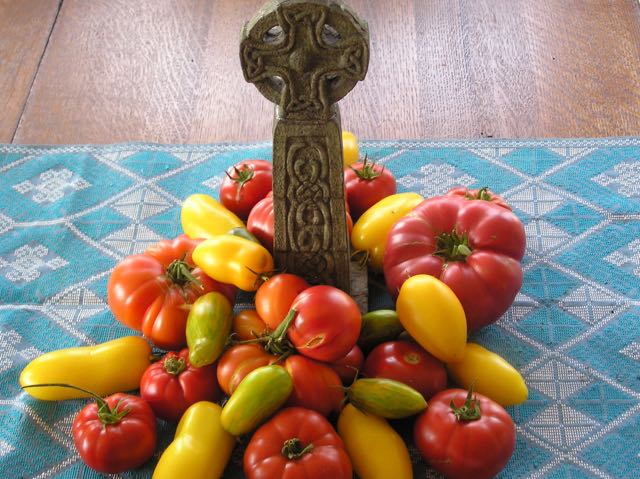
Tomato theology
Over the last few weeks I have planted 30 tomato plants in the garden – another important rite of spring and and an increasingly important part of the rhythm of my life. Here in Seattle, we rarely have tomatoes before the end of July but they are well worth waiting for. You have no idea how much better tomatoes taste straight out of the garden. Ripened in the summer sun, picked at the peak of their flavour, and savoured immediately with other fresh salad vegetables.
I am amazed at how much better all vegetables taste when freshly picked. Kids who never eat their vegetables at home, will stuff themselves with peas, beans, tomatoes and even broccoli florets when they get out in the garden. It’s often the first time they’ve tasted anything the way God intended it to be, not out of the supermarket. And their parents are amazed.
It makes me wonder if part of the reason many of us struggle with what it means to be a Christian is because we get our theology and our Christian discipleship from the supermarket too – picked before it is ripe, stored for months, and past its prime or else as in the case of tomatoes, gassed to make them look ripe and then pumped up with additives to keep it fresh and tasty.
What do I mean – well most of us learn theology by sitting down in chairs and having people yak at us. Or from our twitter feeds and Facebook pages. This might get some useful information into our heads but it definitely does not get God’s principles into our hearts – and to be honest I think it is the most boring and uninteresting way to learn anything.
The only way that God’s principles will get into our hearts is by us putting them into practice. As I have said before I learned my theology in the refugee camps in Thailand. And I continue to learn it through interacting with people from other cultures and perspectives. I read somewhere once that the early Christians felt privileged to live in a nonChristian society because they believed it was through their interactions with people outside the faith that they learned more about God. Now we think we learn best from people who think exactly the same way we do – and I suspect that explains why our theological perspectives are often regarded as old, stale and full of superfluous additives – a little like the produce we buy in the supermarket.
What do you think?

2 comments
YES!! I was exactly talking to someone about this last night. Being “talked at” is the worst! I was talked to for over 40 years before I realized how empty my life was. I learn so much more about God when I am practicing my faith. It puts all that I’ve learned into clear vision. I was thinking this morning about what the apostle Paul said about babies craving spiritual milk. I feel as that is sitting and listening to the sermon. I’m way overfed on milk. That solid food, what Jesus wanted for us, is the practice of our faith. I need some of your tomatoes, by the way. I can’t grow them here in Colorado. 🙂
Jackie, this is exactly what I mean. We are so often talked at rather than listened to and most of what we hear goes in one ear and out the other because we do not get a chance to practice it. I would love to share my tomatoes but I think you will need to come to Seattle to get some of them.